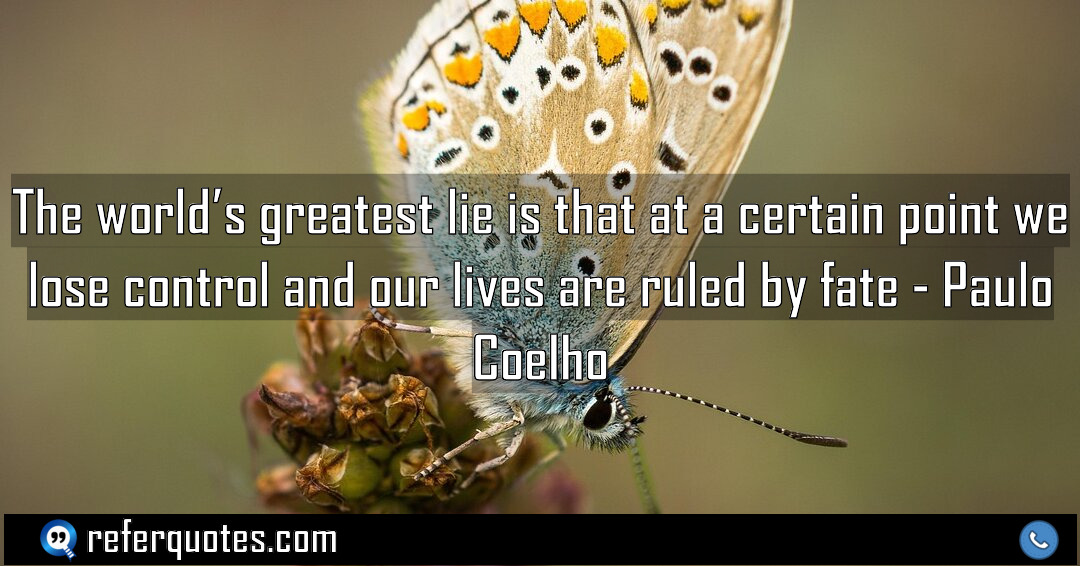“The world’s greatest lie is that…” we surrender our agency to fate. This idea is the core of a powerful personal philosophy about taking control of your own narrative.
Share Image Quote:Table of Contents
Meaning
At its heart, this quote is a rebellion against passivity. It means that the most dangerous and pervasive untruth we’re sold is the idea that our destiny is pre-written and that we are merely passengers in our own lives.
Explanation
Look, I’ve worked with this concept for years, and here’s the real takeaway. It’s not about denying that external events happen—of course they do. It’s about rejecting the *narrative* that those events have the final say. The “lie” is the story we tell ourselves that we’re powerless. Once you internalize that, you stop blaming luck, or your background, or the market, and you start asking, “Okay, so what am *I* going to do about it?” It shifts your entire posture from reactive to proactive. It’s the difference between being a character in someone else’s story and being the author of your own.
Quote Summary
| Context | Attributes |
|---|---|
| Original Language | Portuguese (369) |
| Category | Life (320) |
| Literary Style | didactic (370), pithy (25), provocative (37) |
| Emotion / Mood | clarifying (20) |
| Overall Quote Score | 75 (124) |
Origin & Factcheck
This quote comes straight from Paulo Coelho’s massively influential 1988 novel, *The Alchemist*. It’s spoken by the character Melchizedek, the King of Salem. You’ll sometimes see it misattributed to generic “self-help” lists or even to other authors, but its true home is firmly within that book’s journey of personal legend.
Attribution Summary
| Context | Attributes |
|---|---|
| Author | Paulo Coelho (368) |
| Source Type | Book (4032) |
| Source/Book Name | The Alchemist (72) |
| Origin Timeperiod | Contemporary (1615) |
| Original Language | Portuguese (369) |
| Authenticity | Verified (4032) |
Author Bio
Paulo Coelho(1947) is a world acclaimed novelist known for his writings which covers spirituality with underlying human emotion with a profound storytelling. His transformative pilgrimage along the Camino de Santiago inspired his breakthrough book, The Pilgrimage which is soon followed by The Alchemist< which went on to become the best seller. Through mystical narratives and introspective style, Paulo Coelho even today inspires millions of people who are seeking meaning and purpose in their life
Official Website |Facebook | Instagram | YouTube |
Where is this quotation located?
| Quotation | The world’s greatest lie is that at a certain point we lose control and our lives are ruled by fate |
| Book Details | Publication Year/Date: 1988; ISBN/Unique Identifier: 978-0061122415; Last edition: HarperOne (illustrated edition, 2014); Number of pages: 208. |
| Where is it? | Part One, Melchizedek’s framing, NeedVerification – Edition 2014, page range ~[18–24] |
